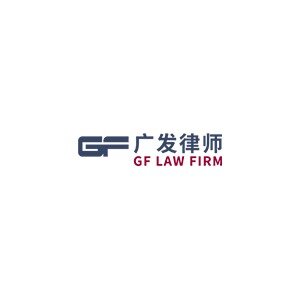Best General Litigation Lawyers in Hangzhou
Share your needs with us, get contacted by law firms.
Free. Takes 2 min.
List of the best lawyers in Hangzhou, China
About Litigation Law in Hangzhou, China
Litigation in Hangzhou, like the rest of China, refers to the process of resolving disputes by filing or answering a complaint through the public court system. Unlike some western common law systems, Chinese litigation is influenced heavily by civil law traditions, with a more inquisitorial approach where the judge plays a central role in investigating the facts and evidence of the case. It's characterized by written submissions and a relatively less adversarial procedure.
The courts in Hangzhou are structured in a tiered system, with the Basic People's Court at the district level handling most initial cases, Intermediate People's Court at the city or prefecture level dealing with appeals or serious first-instance cases, and the Zhejiang Province High People's Court handling high-level appeals. The Supreme People's Court sits at the top of the hierarchy for final appeals.
Why You May Need a Lawyer
Common situations requiring legal help in litigation include business disputes, intellectual property matters, construction conflicts, contract disagreements, employment issues, family law cases, and real estate transactions gone awry. Lawyers are crucial for navigating the complexities of Chinese court procedures, filing appropriate documents, gathering and submitting evidence, and providing representation in hearings and trials.
Local Laws Overview
Hangzhou's local laws are essentially consistent with the national laws of China but may have regulations that address the city's specific circumstances. There are both substantive and procedural laws to be aware of, including the Civil Procedure Law, which governs how lawsuits are processed, and the General Principles of Civil Law, which provide the foundation of legal norms in private law matters.
Frequently Asked Questions
1. How can I file a lawsuit in Hangzhou?
To file a lawsuit in Hangzhou, you must submit a complaint to the appropriate level of the People's Court, along with evidence supporting your claim and the required filing fee. It is advisable to hire a local lawyer to ensure the proper procedure is followed.
2. Do I need a local lawyer to represent me in court?
While it's technically possible to represent yourself, the complexities of the legal system strongly suggest the hiring of a local lawyer who can communicate effectively and navigate the intricacies of the Chinese legal system.
3. What languages are accepted in court documents and proceedings?
All court documents and proceedings are conducted in Mandarin Chinese. If you do not understand Mandarin, you'll need a translator or a lawyer who can communicate in your preferred language.
4. How long does a litigation case typically last?
The duration of a litigation case can vary greatly depending on complexity, court workload, and whether appeals are filed. It might take several months to even a few years for a case to conclude.
5. Can I settle out of court?
Yes, parties are encouraged to settle disputes through mediation or negotiation before resorting to litigation. Settlements can often resolve issues much faster and at a lower cost than going to court.
6. How are damages calculated in civil disputes?
Damages are typically based on the actual loss suffered. Punitive damages are rare in the Chinese legal system.
7. Is litigation private or public in Hangzhou, China?
Most litigation processes are public in Hangzhou, but certain cases, such as family law matters, may be kept private.
8. What are the chances of winning a lawsuit in Hangzhou?
The outcome of a lawsuit depends on many factors, including the quality of evidence, the skill of your legal representation, and the specific circumstances of your case.
9. Can foreigners sue or be sued in Hangzhou?
Foreigners have the right to sue or be sued in Hangzhou, but they must adhere to the same legal processes as Chinese nationals.
10. Can I appeal a court decision?
Yes, decisions made by the Basic People's Court can be appealed to the Intermediate People's Court, and further appeals can be made to the Zhejiang Province High People's Court or even to the Supreme People's Court under certain conditions.
Additional Resources
Additional resources for litigation in Hangzhou include the local judicial bureau, legal aid services for those who cannot afford private representation, and legal clinics at Hangzhou universities that may offer advice. The All China Lawyers Association and its local branches can be helpful in finding qualified legal professionals.
Next Steps
If you need legal assistance in litigation, your first step should be to consult with a qualified lawyer with experience in the specific area of law relevant to your case. You can contact a local law firm, legal aid organization, or the bar association for guidance. Collect all the relevant documents and evidence that might support your case before meeting with an attorney.
Lawzana helps you find the best lawyers and law firms in Hangzhou through a curated and pre-screened list of qualified legal professionals. Our platform offers rankings and detailed profiles of attorneys and law firms, allowing you to compare based on practice areas, including General Litigation, experience, and client feedback.
Each profile includes a description of the firm's areas of practice, client reviews, team members and partners, year of establishment, spoken languages, office locations, contact information, social media presence, and any published articles or resources. Most firms on our platform speak English and are experienced in both local and international legal matters.
Get a quote from top-rated law firms in Hangzhou, China — quickly, securely, and without unnecessary hassle.
Disclaimer:
The information provided on this page is for general informational purposes only and does not constitute legal advice. While we strive to ensure the accuracy and relevance of the content, legal information may change over time, and interpretations of the law can vary. You should always consult with a qualified legal professional for advice specific to your situation.
We disclaim all liability for actions taken or not taken based on the content of this page. If you believe any information is incorrect or outdated, please contact us, and we will review and update it where appropriate.












